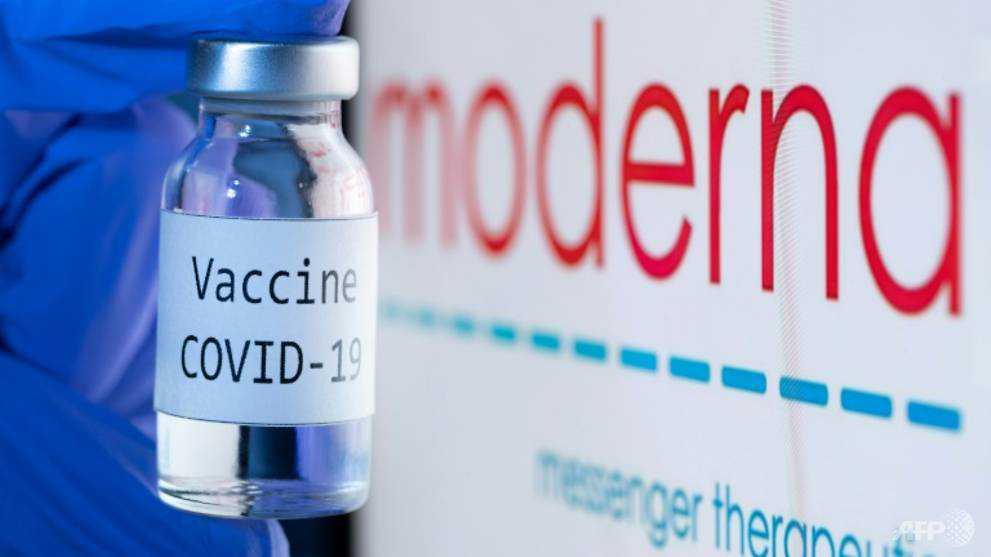US authorises Moderna as second COVID-19 vaccine
19 December, 2020

AMERICA on Friday (Dec 18) authorised Moderna's COVID-19 vaccine for emergency use, paving just how for six million doses of another vaccine to soon begin shipping across the hardest-hit country on the globe.
Food and Drug Administration (FDA) chief Stephen Hahn said: "With the availability of two vaccines now for preventing Covid-19, the FDA has taken another crucial part of the fight this global pandemic."
"Congratulations, the Moderna vaccine is currently available!" tweeted President Donald Trump.
The US may be the first nation to authorise the two-dose regimen from Moderna, now the next vaccine to be deployed in a Western country after the first, produced by Pfizer and BioNTech.
The Pfizer-BioNTech vaccine was approved by Britain on December 2, accompanied by several other countries like the US the other day. Less-vetted shots are also rolled out in China and Russia.
Meharry Medical College President James Hildreth, who was part of a panel of professionals convened by the FDA to go over approval matters, said Thursday it had been a "remarkable achievement" to are suffering from and authorised the Pfizer and Moderna vaccines within the space of a year.
Together, they offer a glimmer of light towards the end of the pandemic's long tunnel.
The United States alone has seen more than 310,000 persons die from coronavirus infections and is amid a brutal winter surge, with nearly 115,000 persons hospitalised, according to the Covid Tracking Project.
Millions of doses will now start shipping out as soon as this weekend from cold-storage sites outside Memphis and Louisville, overseen by logistics firm McKesson.
From there they will be sent to sites around the country via partnerships with FedEx and UPS.
CUTTING-EDGE TECHNOLOGY
Moderna has other drugs under development, but hasn't before seen any authorised.
The decade-old, Massachusetts-based biotech company received $2.5 billion in federal funding for its efforts and co-developed the vaccine with scientists at the National Institutes of Health.
Both Pfizer and Moderna vaccines are based on cutting-edge mRNA (messenger ribonucleic acid) technology, and both have already been shown to be impressive, protecting about 95 percent of individuals against Covid-19 compared to a placebo.
They are also found to have no serious safety issues in clinical trials involving thousands of people each.
The mostly reported unwanted effects were pain at the injection site, tiredness, headache, muscle pain, chills, joint pain, swollen lymph nodes in the same arm as the injection, nausea and vomiting, and fever.
But there have been a handful of individuals around the world who developed significant allergies after acquiring the Pfizer vaccine, and the FDA has said it'll remain vigilant in its monitoring.
Both vaccines come with warnings for people who've histories of allergies to their ingredients in order to avoid having them.
The FDA will also be searching to see whether both vaccines may in extremely rare circumstances be associated with Bell's Palsy, a comparatively mild and short-term facial paralysis condition.
There were a handful of such cases in the clinical trials, however, not enough to attribute causality.
The FDA said immunocompromised people may have diminished immune reaction, and said there is not enough data to state whether there have been any particular risks associated to giving the vaccine to pregnant people.
PLACEBO DILEMMA
Both of the vaccines work by giving human cells the instructions to make a surface protein of the coronavirus, which simulates an infection and trains the disease fighting capability for when it encounters the true virus.
Both differ in the formulation of the fatty particles used to provide the mRNA, which allows Moderna's vaccine to be kept in permanent storage at -20 degrees Celsius, unlike Pfizer's, which should be placed at -90 degrees Celsius.
Moderna carried out a clinical trial greater than 30,000 people, roughly half of whom were given the merchandise and the spouse a placebo, with neither recipients nor their healthcare providers knowing who was in each group.
It has proposed to "unblind" the complete study and provide placebo recipients the vaccine, a plan criticized by some authorities who say scientists will be deprived of valuable data, plus some people will wrap up getting the vaccine before others within their priority group.
The US has payed for 200 million doses, enough to vaccinate 100 million people.
Moderna proposes to ship 20 million this month and 80 million more in the first quarter of 2021, with the rest of the 100 million in the next quarter.
Source: www.channelnewsasia.com
TAG(s):
